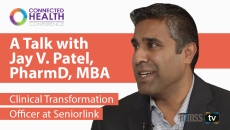Pharmacy
HIMSS19: Leveraging technology to improve prior authorization...
Community Oncology Alliance commends proposal to overhaul what it calls secretive drug rebate system that drives list prices higher.
Under the proposal, drugs would be chosen that have the lowest price, not the ones that offer the highest rebate.
Cigna's acquisition of current pharmacy benefit manager Express Scripts helped spur the early launch.
The system's pharmacy team conducts a targeted gene panel for medication metabolism for psychiatry, pain and oncology, among other conditions.
For the first time, MA plans may lower cost sharing for drugs such as Naloxone, to treat opioid overdoses.
The AAPS recommended a number of specific solutions, including ending the safe harbor to the Medicare Anti-Kickback Statute.
Even if it's passed into law, proposed legislation to force price disclosures is unlikely to create the kind of competition that affect prices.
Jay Patel, clinical transformation officer at Seniorlink, says comprehensive tools for aging populations are going to require, among other things, cybersecurity and data aggregation among patients, family members and caregivers.
Spending for retail prescription drugs reached $333.4 billion in 2017, and those rising costs represent 10 percent of overall healthcare spend.
